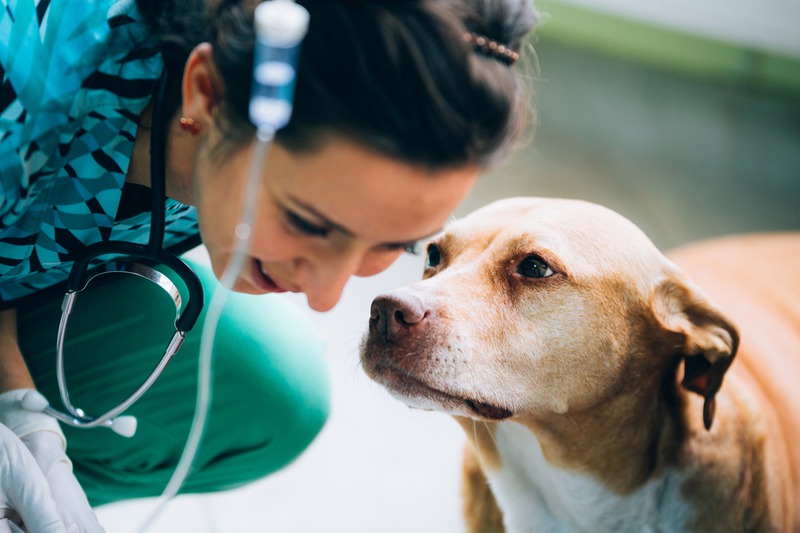In veterinary medicine, animals’ health and well-being are paramount. Similar to humans, our furry friends can also face medical emergencies where a lifesaving procedure like a blood transfusion becomes necessary. But when is an animal blood transfusion needed? This procedure is often critical to treating various health issues that might arise in pets due to injury, illness, or surgery.
The Role of Blood in Animal Health
Blood plays a vital role in animals’ bodily functions, just as it does in humans. It carries essential nutrients and oxygen to different parts of the body and helps in the removal of waste products. Maintaining the proper volume and composition of blood is crucial for an animal’s overall health.
Reasons for a Blood Transfusion
There are several reasons why a vet might decide that an animal requires a blood transfusion. These can include:
-
Anemia or severe blood loss due to trauma or surgery.
-
Blood disorders such as hemophilia or thrombocytopenia.
-
Toxin exposure destroys blood cells or prevents blood clotting.
-
Support during major surgeries where significant blood loss is anticipated.
Types of Blood Transfusions
Animal transfusions can be whole blood transfusions, where the entire blood is used, or component therapy, which uses specific parts of the blood, such as red blood cells, plasma, or platelets, depending on the patient’s needs.
When Intervention is Critical
An animal blood transfusion is not a procedure that is taken lightly. Vets will assess the situation and decide if a transfusion is best. Specific cases where a transfusion becomes necessary include:
-
When an animal is suffering from rapid loss of blood either internally or externally and is at risk of going into shock.
-
Chronic diseases that lead to the destruction of blood cells require periodic transfusions.
-
During or after major surgeries, especially if the animal has a condition that affects blood clotting.
In such critical situations, a timely transfusion can mean the difference between life and death for an animal. Regular monitoring and blood tests are vital in determining when the time is right for a transfusion.
Compatibility and Donor Selection in Animals
Like humans, the blood used for an animal transfusion must be compatible with the recipient’s. There are different blood types in animals, and using blood from an incompatible donor could lead to life-threatening reactions. Therefore, considerable care is taken to type and screen blood before a transfusion.
Finding a Donor
Finding a suitable donor for an animal needing a transfusion is essential, for specialized blood banks exist for many domestic animals, such as dogs and cats. In other cases, a vet might have to rely on donor animals they have on record. A healthy donor is vital to ensure safe transfusion practices.
Animal Blood Transfusion
Sometimes, treating specific species requires specialized knowledge about their unique physiology. For instance, a feline blood transfusion is delicate because cats have several blood types, and mismatching can be fatal. Vets must be precise when treating felines to avoid hemolytic transfusion reactions.
Monitoring and Aftercare
During and after a transfusion, meticulous monitoring is essential. Vets will check vital signs and observe the patient for any adverse reactions. After the procedure, the pet may need to be hospitalized to ensure a full recovery and to allow for post-transfusion testing, confirming the transfusion’s success.
Home Care Post-Transfusion
Once the animal returns home, pet owners are tasked with maintaining a quiet and comfortable environment for their pets to recover. Close observation for any signs of distress is important, and the pet may need to continue with medications or return for follow-up appointments with the vet.
Specialty and Emergency Vets
Lifesaving procedures like blood transfusions are often conducted by vets with specialized training or emergency veterinarians. For example, if you have a pet in critical condition in Southern California, finding a vet in Upland, CA, with the necessary skills and experience is essential. These professionals stand ready to provide urgent medical care to pets in need.
Veterinary Diagnostic Laboratory
Preparation and testing for a blood transfusion involve working with a veterinary diagnostic laboratory. Access to a vet pharmacy that can supply the necessary blood products and transfusion supplies is also critical for these labs to support the work of veterinarians. They ensure the blood is safe, the correct type, and readily available when emergencies arise.
The Evolution of Veterinary Blood Transfusions
The field of veterinary medicine has made significant strides in transfusion medicine. Improved screening, a better understanding of animal blood groups, and advances in transfusion techniques all enhance the safety and efficacy of animal transfusions.
The Future of Transfusion Medicine
Emerging technologies and ongoing research promise further advancements in animal transfusion medicine. The goal remains the same: to save lives and improve the quality of life for animals entrusted to the care of vets.
Final Thoughts
Thus, blood transfusions in animals are complex yet lifesaving procedures. They are necessary during various medical scenarios, including acute emergencies, chronic conditions, and surgical interventions. Veterinarians and pet owners should know the indications, processes, and aftercare associated with blood transfusions, ensuring pets receive the best possible care in their time of need.


